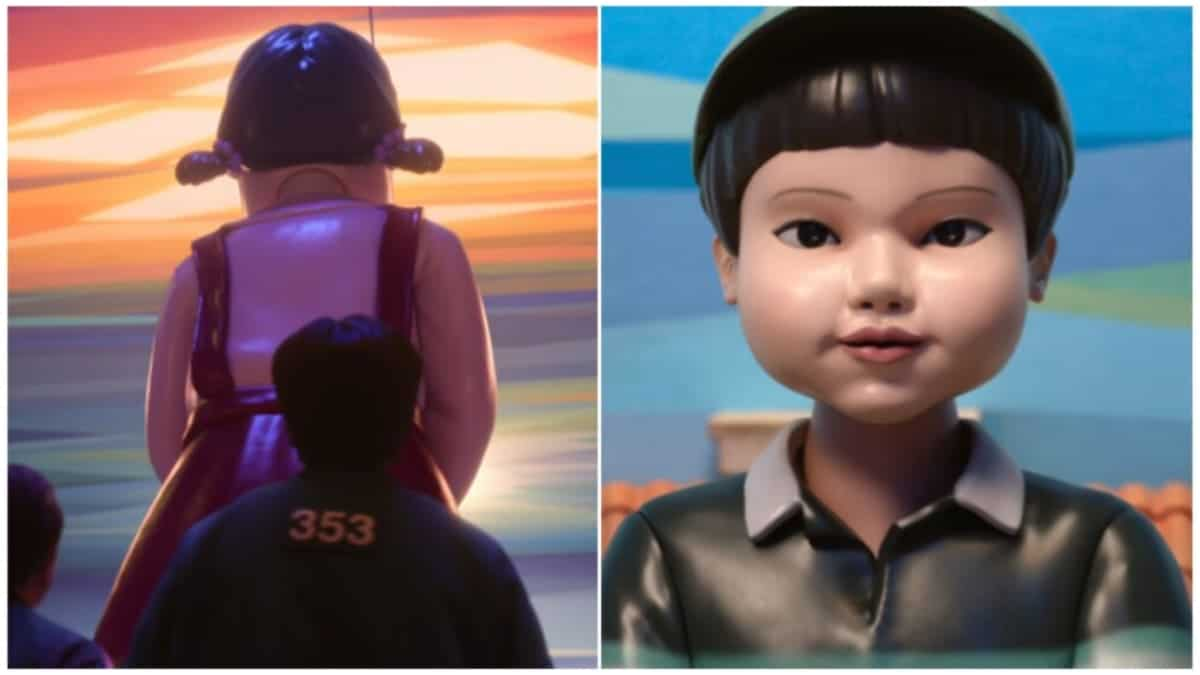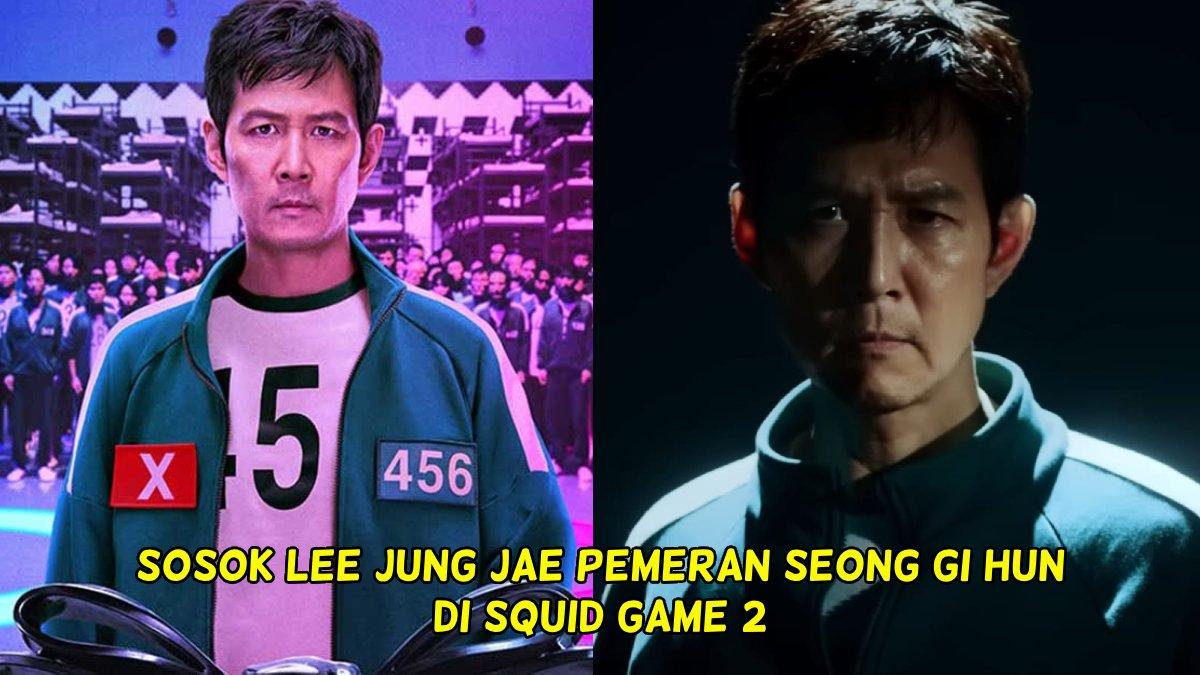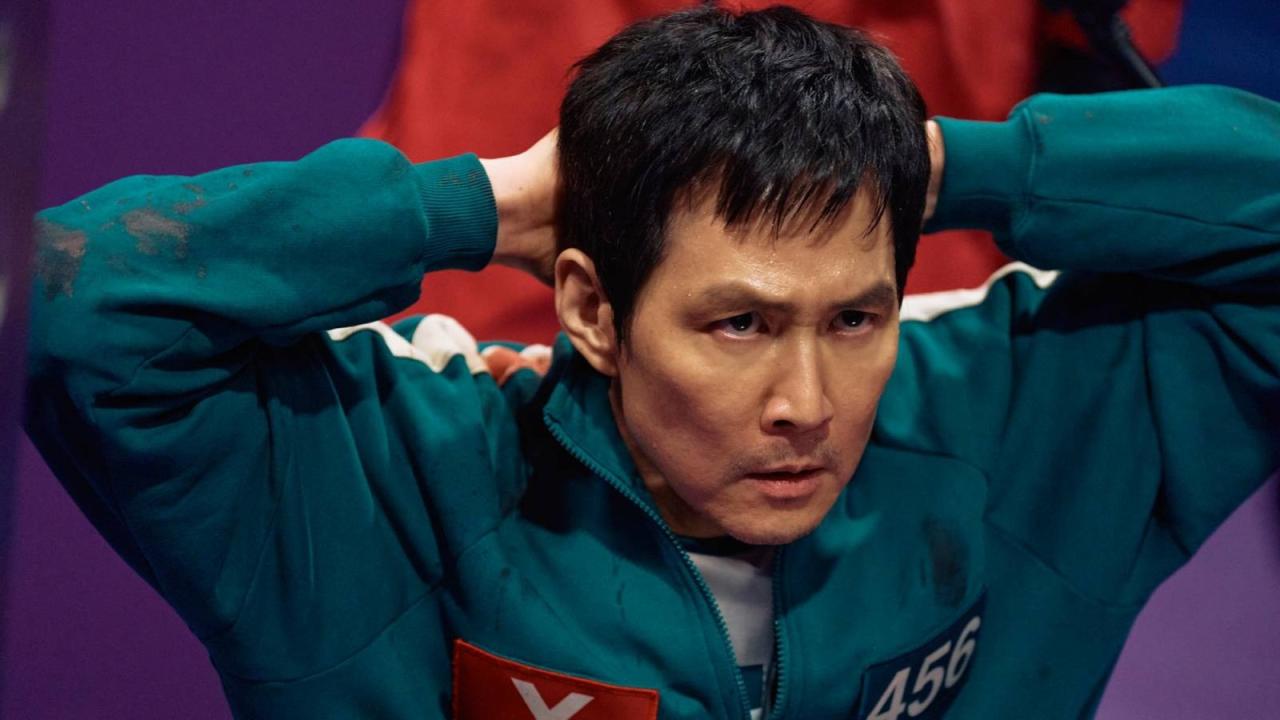Gi Hun Squid Game, a captivating and thought-provoking South Korean drama, has captivated audiences worldwide with its gripping narrative, exploration of social issues, and stunning visuals. This gripping series delves into the depths of human nature, morality, and the devastating consequences of societal inequality.
At its core, Gi Hun Squid Game is a survival story that follows a group of desperate individuals who risk their lives in a series of deadly children’s games for a chance to win a life-changing sum of money. As the games progress, the contestants are forced to confront their own limits, both physically and morally, while the world watches in horror and fascination.
Character Profile: Gi-hun
Gi-hun is the main protagonist of the Korean drama series “Squid Game”. He is a divorced father who is deeply in debt and struggling to make ends meet. He is invited to participate in a series of children’s games for a chance to win a large sum of money.Gi-hun is a complex character who is both flawed and sympathetic.
He is often selfish and impulsive, but he also has a strong sense of justice and compassion. He is willing to put himself in danger to help others, and he ultimately sacrifices his own life to save his friend.
Backstory
Gi-hun grew up in a poor family. His father was an alcoholic who often abused him and his mother. Gi-hun’s mother eventually left the family, and Gi-hun was raised by his grandmother.Gi-hun was a good student, but he dropped out of high school to help support his family.
He worked a series of dead-end jobs, and he eventually became addicted to gambling.Gi-hun’s gambling addiction led him to lose all of his money and to accumulate a large amount of debt. He was evicted from his apartment and was forced to live on the streets.
Personality
Gi-hun is a complex character who is both flawed and sympathetic. He is often selfish and impulsive, but he also has a strong sense of justice and compassion.Gi-hun is a survivor. He has had to overcome a lot of adversity in his life, and he has learned to be resourceful and resilient.
He is also a quick learner, and he is able to adapt to new situations quickly.Gi-hun is a loyal friend. He is always willing to help others, even if it means putting himself in danger. He is also a good listener, and he is always there for his friends when they need him.Gi-hun is a flawed character, but he is also a good person.
He is trying to do the best he can in a difficult world, and he is always willing to help others.
Relationships
Gi-hun has a close relationship with his daughter, Ga-yeong. He loves her very much, and he is determined to provide a better life for her.Gi-hun also has a close relationship with his friend, Sang-woo. Sang-woo is a brilliant strategist, and he helps Gi-hun to survive the games.Gi-hun has a complicated relationship with his ex-wife, Seong.
She left him because of his gambling addiction, but she still cares for him.
The Squid Game
The Squid Game is a South Korean survival drama television series created by Hwang Dong-hyuk. The show follows 456 contestants who are invited to participate in a series of children’s games for a chance to win a large sum of money.
However, the games are deadly, and the contestants are eliminated one by one until only one winner remains.
The Squid Game is a commentary on the growing inequality and desperation in South Korea. The contestants are all from different walks of life, but they are all united by their desire for money. The games are designed to test the contestants’ physical and mental limits, and they often force them to make difficult moral choices.
The show explores the dark side of human nature, and it asks questions about the value of life and the importance of compassion.
Rules and Structure
The Squid Game is played in a series of rounds, each of which is based on a different children’s game. The first round is Red Light, Green Light, and the contestants are eliminated if they are caught moving when the light is red.
The second round is Honeycomb, and the contestants must carve a shape out of a honeycomb without breaking it. The third round is Tug of War, and the contestants are eliminated if they are pulled across a line. The fourth round is Marbles, and the contestants must win a game of marbles against an opponent.
The fifth round is Glass Bridge, and the contestants must cross a bridge made of glass panels, some of which are tempered and some of which are not. The sixth and final round is Squid Game, and the contestants must engage in a deadly game of squid game.
Significance of the Games
The games in the Squid Game are not simply random children’s games. They are each designed to test a different aspect of the contestants’ character. Red Light, Green Light tests their obedience and self-control. Honeycomb tests their patience and precision.
Tug of War tests their strength and teamwork. Marbles tests their cunning and strategy. Glass Bridge tests their courage and risk-taking ability. Squid Game tests their determination and willingness to sacrifice themselves for others.
Ethical Implications
The Squid Game raises a number of ethical questions. The most obvious question is whether or not it is ethical to put people in such a dangerous situation for the sake of entertainment. The show also raises questions about the value of life and the importance of compassion.
The contestants are forced to make difficult moral choices, and the show explores the consequences of those choices.
Symbolism and Themes: Gi Hun Squid Game
The Squid Game is rife with symbolism and themes that explore the darker aspects of human nature and society. From the titular game itself to the characters’ motivations, the show offers a scathing indictment of class struggle, inequality, and the dehumanizing effects of modern life.
One of the most striking symbols in the show is the squid game itself. The game, with its brightly colored sets and seemingly harmless challenges, belies a sinister underbelly. The games are designed to pit the contestants against each other, creating a sense of distrust and paranoia.
The fact that the contestants are forced to wear identical tracksuits further emphasizes their anonymity and disposability.
Class Struggle
The Squid Game is a microcosm of the class struggle that exists in the outside world. The contestants are divided into two groups: the wealthy VIPs, who watch the games for entertainment, and the poor contestants, who are desperate for the prize money.
The VIPs represent the 1%, while the contestants represent the 99%. The games are rigged in favor of the VIPs, and the contestants are treated like pawns in their deadly game.
Inequality
The Squid Game also highlights the issue of inequality. The contestants come from all walks of life, but they are all united by their poverty. They are all desperate for a chance to win the prize money, but they know that the odds are stacked against them.
The show exposes the widening gap between the rich and the poor, and it shows how the wealthy are willing to exploit the poor for their own entertainment.
The Human Condition
The Squid Game is ultimately a commentary on the human condition. The show explores the dark side of human nature, and it shows how people are capable of great evil when they are pushed to the limit. The show also raises questions about the value of life and the meaning of happiness.
In a world where money and power are the ultimate goals, what is the point of living?
Visual and Cinematic Elements
Squid Game, a South Korean survival drama series, captivates audiences with its striking visual and cinematic elements. The show’s cinematography, color palette, and sound design work together to create an immersive and unsettling atmosphere that enhances the impact of its harrowing narrative.
The cinematography, led by cinematographer Park Se-jun, is characterized by its use of long takes, often following characters through the claustrophobic game arenas. These long takes draw viewers into the characters’ experiences, making them feel like they are present within the games.
The show also employs handheld camerawork, which adds to the sense of urgency and realism.
Color Palette
The color palette in Squid Game is deliberately muted and desaturated, with a predominance of gray, green, and brown. This muted palette creates a sense of drabness and despair, reflecting the characters’ grim circumstances. In contrast, the games themselves are often depicted in vibrant colors, such as the bright pink of the tracksuits and the neon lights of the arena.
This contrast between the dull reality of the outside world and the artificial brightness of the games highlights the surreal and deadly nature of the competition.
Sound Design
The sound design in Squid Game is equally effective in creating an unsettling atmosphere. The show’s soundtrack, composed by Jung Jae-il, is sparse and eerie, featuring a mix of ambient noise, distorted sounds, and occasional bursts of silence. This minimalist approach amplifies the tension and dread, keeping viewers on edge throughout the series.
Specific Examples
One memorable scene that demonstrates the show’s visual prowess is the “Red Light, Green Light” game in the first episode. The long take that follows Gi-hun as he navigates the field of motion sensors creates a palpable sense of suspense.
The muted color palette and eerie soundtrack further contribute to the unsettling atmosphere, making this scene one of the most iconic in the series.
Cultural Impact
Squid Game, a South Korean survival drama series, has taken the world by storm, becoming one of the most popular and talked-about shows in recent years. Its global success has had a significant impact on popular culture, influencing various aspects of art, fashion, and social trends.
The show’s widespread appeal can be attributed to several factors. Its unique and gripping storyline, which combines elements of suspense, horror, and social commentary, has resonated with audiences worldwide. The show’s relatable characters, who struggle with financial difficulties and desperation, have also made it emotionally engaging for viewers.
Influence on Other Works of Art
Squid Gamehas inspired numerous works of art, including fan art, memes, and even stage productions. Artists have created paintings, sculptures, and other artworks inspired by the show’s iconic imagery, such as the red jumpsuits, the honeycomb game, and the masked guards.
Influence on Fashion, Gi hun squid game
The show’s distinctive visuals have also influenced fashion trends. The red jumpsuits and white Vans sneakers worn by the contestants have become popular fashion items, and designers have incorporated elements of the show’s aesthetic into their collections.
Influence on Social Trends
Squid Gamehas sparked discussions about social inequality, capitalism, and the dangers of unchecked power. The show’s critique of these issues has resonated with audiences, leading to increased awareness and activism around these topics.
Final Summary
Gi Hun Squid Game is a powerful and unforgettable series that leaves a lasting impression on its viewers. It is a stark reminder of the fragility of life, the corrosive effects of inequality, and the desperate measures people will take to survive.
The series’ stunning visuals, thought-provoking themes, and unforgettable characters make it a must-watch for anyone interested in exploring the darkest corners of human nature and the complexities of modern society.
Common Queries
What is the premise of Gi Hun Squid Game?
Gi Hun Squid Game is a South Korean drama that follows a group of desperate individuals who compete in a series of deadly children’s games for a chance to win a life-changing sum of money.
What are the ethical implications of the games in Gi Hun Squid Game?
The games in Gi Hun Squid Game raise questions about the value of human life, the nature of consent, and the limits of morality. The contestants are forced to make difficult choices that have life-or-death consequences, and the series explores the psychological and emotional toll that these choices take on them.
What is the significance of the symbolism in Gi Hun Squid Game?
Gi Hun Squid Game uses a variety of symbols to explore its themes of inequality, survival, and human nature. The green tracksuits worn by the contestants represent their anonymity and disposability, while the masked guards symbolize the faceless authority that controls the games.
The honeycomb game is a metaphor for the fragility of life, and the glass bridge game represents the perilous journey that the contestants must take to achieve their goals.



